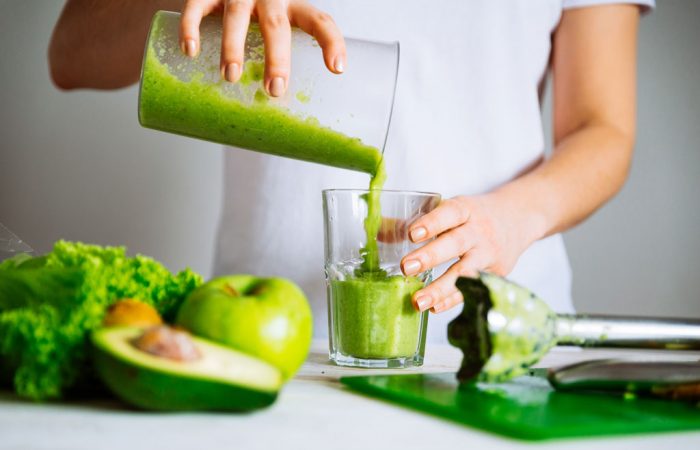Recipes for success
Tennis Australia Performance Dietitian Jo Shinewell is helping professional players maximise their rare break from the tour through a range of nutrition-related initiatives.
Melbourne, Australia, 28 April 2020 | Vivienne Christie

While typical routines have been dramatically disrupted as professional players wait out the shutdown created by the coronavirus crisis, maintaining healthy eating habits is one that can continue.
In many ways, in fact, strong nutritional habits are supported by a rare break from the tour.
Tennis Australia Performance Dietitian Jo Shinewell is helping professional players maximise their time at home through online cooking classes and other nutrition-related initiatives.
“While they’re on the tour, keeping in touch with players is the biggest challenge,” she explains. “While they’re on ground here we feel like we can do a lot of education, focus on making sure their dietary intake is ideal and provide them with eating plans.”
By providing players with tips, recipes and classes – where dishes have included toasted and bircher muesli, chicken dim sum and smoothies with targeted nutritional elements – the Melbourne-based dietitian is also helping to create habits that will support players when they are travelling.
“A lot of it is not performance nutrition at the moment, it’s actually more about getting their foundation right and also making sure that their general eating habits are not just good, but great,” Shinewell relates.
“This means it can be replicated on tour. When they are on tour there may be more downtime than a training block, that’s a similar situation to now. This is currently not an ideal scenario. This is the hardest time to actually eat well.
“We’re trying to help them be really smart with recipes that are simple and easy that they can make on the road, rather than going to restaurants all the time. Giving them more information to think outside the performance nutrition square – just think about their bodies a bit more.”
Tennis Australia performance dietician Jo Shinewell with Storm Sanders in 2018.
There’s also practical advice to help players avoid the common challenge of boredom eating in the absence of typical activities.
While Shinewell recommends players keep healthy options such as cut-up vegetables, fruit and yoghurt on hand, she also urges them to consider situations that prompt less supportive eating habits.
“When we eat it the neurotransmitter dopamine is released, which is a desire chemical. It gets released – particularly when we eat something that’s high fat, high salt or high sugar,” she explains.
“If someone knows they’re a boredom eater, it’s all about finding their cues. So is there particular times of the day that they know they do it. And if that’s something that happens to you all the time, then go and do some exercise, go for a walk.
“I’ve even suggested things like colour-code your wardrobe, alphabetize your pantry, do a crossword or a sudoku with a cup of tea. It’s about how to get away from thinking in that vicious cycle.”
There’s also helpful advice for those people seeking foods that will help build their immunity.
“There’s lots of nutrients that are important for immunity. Zinc is one that’s really important,” says Shinewell, who explains the richest source of the nutrient is oysters, followed by red meat, white meat and in smaller values, legumes and nuts.
“if you don’t want to have meat that’s fine, you’ve just got to find ways to be creative and find those other nutrients. Throw nuts and seeds into salads, or legumes such as chickpeas or red kidney beans into a stir fry. You’ve just got to be a bit more creative.”
Vitamin C, best sourced through citrus fruits and berries, is another nutrient that boosts immunity.
While most athletes will maintain healthy eating habits, there are also ways to maintain discipline in the most tempting situations.
“If you feel like you need a treat, what are you looking for? Is it just because you feel like you want that comfort food? That’s OK but I always say to people that 90 per cent of the pleasure is in the first mouthful,” says Shinewell.
“So if you go and bake yourself a chocolate cake, you don’t need to eat that whole chocolate cake to be satisfied. That first one or two bites of a slice is going to be where you hit that point of feeling amazing and you don’t need more than that.
“It’s not about what’s a better treat than another, it’s more about the portion control and the frequency of eating those foods.”
If there’s one area for caution, says the performance dietitian, it’s when activity levels are lower than normal: “Then you need to counter the food you’re consuming to the amount of activity you’re doing.”
Easily implemented, it’s among the many nutritional tips that are providing players with a recipe for success on their eventual return to the tour.